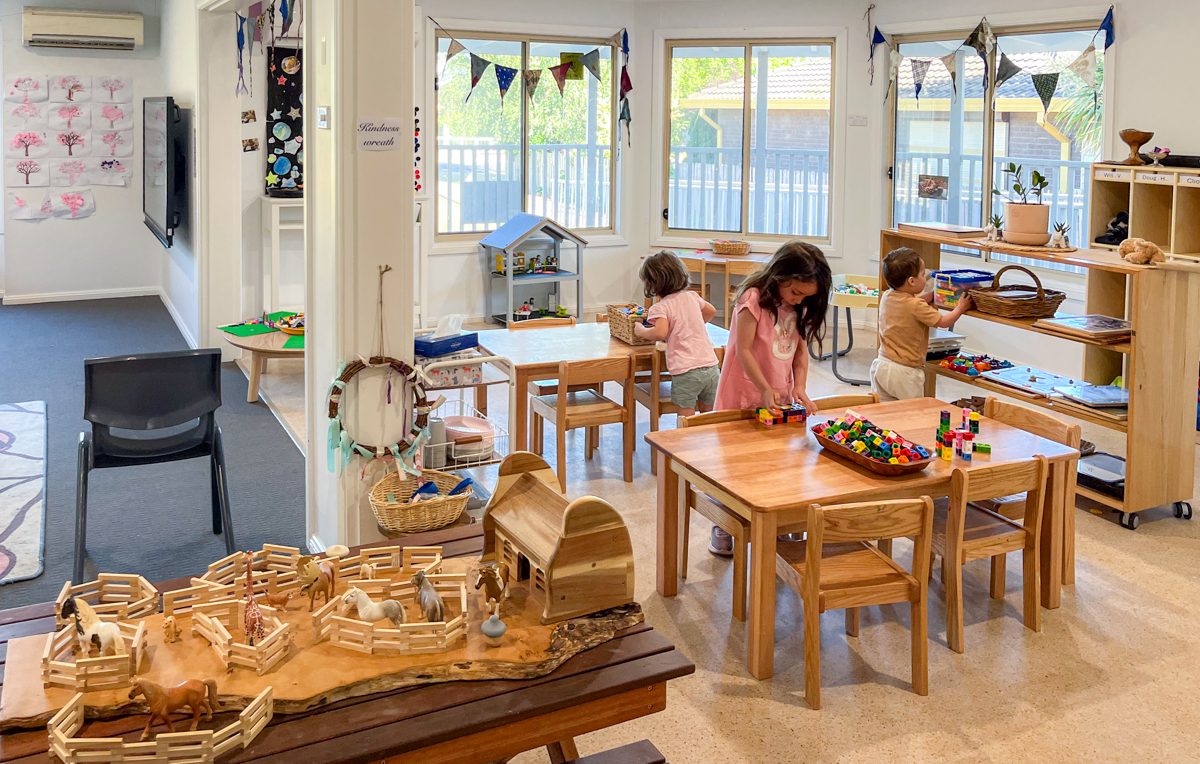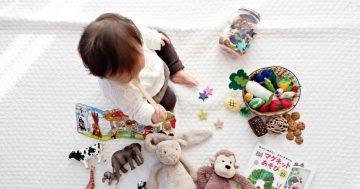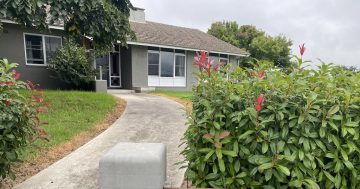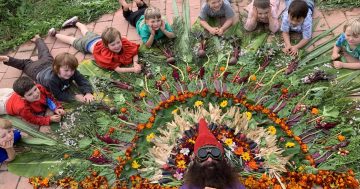
Lisa Dixon changed her career several years ago and now runs three childcare centres in south-east NSW. Photo: Region.
At a time when childcare centres across Australia are calling out for staff, one woman is making the case for workers to come to NSW’s south-east.
For Lisa Dixon, becoming an early childhood educator came as a career change when she returned to work after having her first child.
“The first day I dropped my oldest child off at childcare and I went to work, I just thought, ‘Why am I here when I could be there with her?’,” she said.
“All of my four children and three of my grandchildren have been with me, all through their journey through early childhood.”
She would eventually come to own two centres in coastal NSW and took over a Braidwood centre in 2024.
“I actually live at Nerriga, which is the other side of Braidwood,” she said.
“I was commuting every day down to the coast and it just felt like the right thing to do.”
Ms Dixon acknowledges the struggles that come with finding childcare, saying it’s a “heartbreaking” experience for educators to discuss with families what she calls the “restrictions of not having childcare”.
“We really struggle with that when a parent says, ‘I don’t have any other option’ … that’s tricky.
“That’s emotional for us as we would like to help everybody and offer care and education to as many children as we can.”
A recent study by Victoria University’s Mitchell Institute estimated 24 per cent of Australia’s population lives in areas where there are more than three children per childcare place. The industry is also facing a worker shortage.

Ms Dixon says there’s plenty to love about living – and working – in regional Australia. Photo: Claire Fenwicke.
There have been shortages of early childhood teachers in all of Australia’s states and territories from 2021 to 2024, according to Jobs and Skills Australia’s Occupational Shortage List.
It’s a similar picture for childcare workers, with shortages across most of the country (the only exception was Queensland in 2021) over the same period.
A 2024 government report into the early childhood education sector also found that regional and remote areas were facing increased demand for childcare services.
And while more workers won’t solve every issue facing the sector, Ms Dixon says regional areas come with their own drawcards.
Unlike centres in big cities, which can have hundreds of kids enrolled, she says that regional areas bring “a more relaxed lifestyle” to the table.
“If being on the land is your passion [alongside] horses and cows, and being part of a tight-knit community, then this offers that.
“But we’re so close to Canberra, we’re so close to Wollongong. Where we’re located is an amazing position to be in.”
She pointed to her Braidwood centre, which has 29 places (though there are discussions under way about an expansion).
“It’s very personal. We have a very small team, which is really lovely to work with.
“I feel, because we’re a smaller community, we not only get a relationship with the children, but their families.
“[We’ve built] relationships with the families and we know their children. We get to know what their interests are, what they like, what they don’t like, what they need support with.”
















